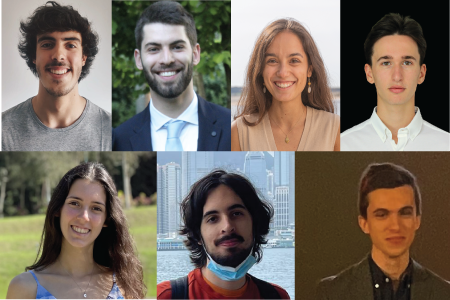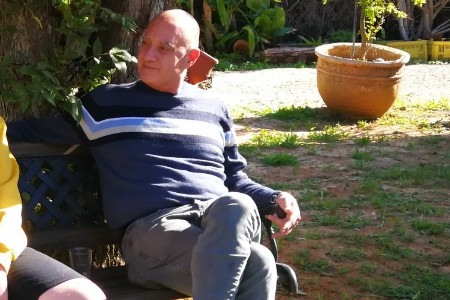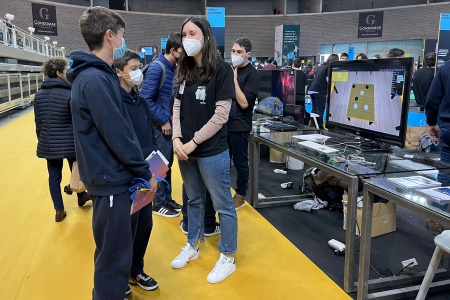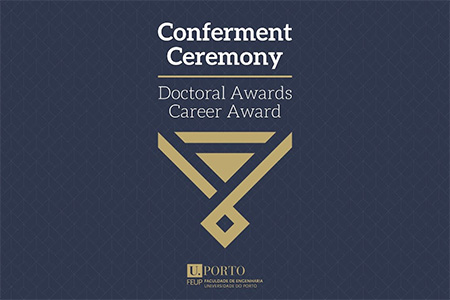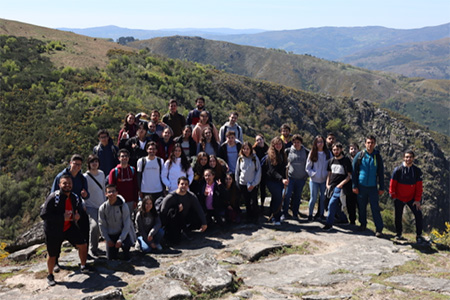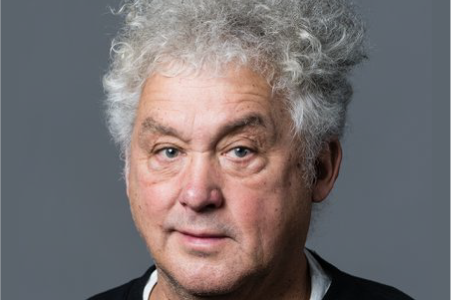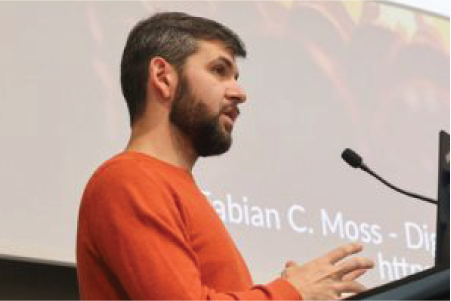Following the commitment assumed with the education sector in Portugal, through a memorandum of understanding signed during the 2021 edition of the Web Summit, at the StartUp Portugal stand, between Associação DNS.PT (.PT) and Huawei Portugal, Huawei launched a Scholarship Programme directed to university students in the areas of Engineering and Science, having recently recognized 50 university students for their academic and personal merit with the attribution of a scholarship worth 5,000 Euros, in an investment of 250,000 Euros.
For Forbes Portugal, Diogo Madeira da Silva, Head of Public Affairs & Communications at Huawei Portugal said that this is a “significant investment in the training of Portuguese students and an indelible contribution to a more capacitated, more digital and more competitive Portugal”, hence the fact that this initiative is being promoted together with .PT and with the support of INCoDe.2030, of Portugal Digital, the Commission for Citizenship and Equality and the Secretary of State and the Commission for Citizenship and Equality, “guarantees us the alignment with the empowerment, digital transition and equality agenda that the country is pursuing. And we hope that more partners can join this initiative”.
Around 3000 applications were received from young university students from all over the country, including the 7 students from DEI who recently received one of these scholarships that will make all the difference in their academic careers; Sofia Pinto, Tiago Oliveira, Miguel Silva and Diogo Neves are students in the Bachelor in Informatics and Computing Engineering, a joint FEUP/FCUP programme, and Rita Peixoto, Mário Mesquita and Miguel Gomes from the Master in Informatics and Computing Engineering at FEUP.
Talking to Sofia Pinto, she tell us that when she saw the email about the scholarship program, from the L.EIC secretariat, she thought “I think I have the right profile and trying is not difficult” and that’s how she “dared” to participate. And his decision couldn’t have been better, as it will allow her to save to invest in an MBA in the future and to travel, accumulating the experiences provided by what she most likes to do, travel!
Tiago Oliveira, Founder and Associate Director of Easy Future, intends to invest part of the winnings in this association and believes that this project was one of the most valued aspects in his CV, having decisively contributed to his being among the 50 lucky winners. Regarding the future Tiago tells us that he intends to create or work in a company that bets strongly in the technological development of the companies, through low cost means of development of sites and apps and support in the cybersecurity area.
Miguel Silva, 2nd year student at L.EIC, believes that the success of his application was due to his passion for technology, applied to the personal projects he develops in his spare time and also to the work developed in the different student groups where he is inserted. At the same time Miguel already dreams with the ERASMUS program, and counts with the scholarship for the additional costs of a season abroad. “It reassures me to know that I have room to explore different interests and invest in my education from now on”.
Diogo Neves also sees ERASMUS as one of his academic ambitions because of his lifelong curiosity to get in touch with the digital reality of other countries. Diogo believes that his numerous extra-curricular activities, such as musical projects, social initiatives, involvement in academic associations and the various courses taken outside the area of computing, were the key to getting this grant.
Rita Peixoto considers that it was her professional experience so far, her summer internship, her path at JuniFEUP, namely now as Director of the Technology Department, and also her proactivity, mirrored in the various volunteering activities, the Erasmus+ program of partnership with Secondary Schools, the academic monitoring and the constant presence of sport in her life, the aspects most valued by Huawei.
“My dream is to create my own company and develop an innovative product that will help as many people as possible. Throughout my academic career I try to develop and implement the most different project ideas that I have, and I hope that one day one of them will grow to the point of becoming my job and main focus.” – this is how Miguel Gomes sees his future. As for the present, he considers that his professional experience at INESCTEC and Cloudware, his duties as a monitor at the “consultório digital de matemática” , his involvement in a student group, and the project developed in the IDEIA course unit were decisive for the success of his application.
Mário Mesquita, currently in Hong Kong on an exchange program, believes that his entrepreneurial spirit, applied to activities in student groups, participation in competitions, his professional experience obtained in internships and part-times, and the website he created, were valued and decisive to get this scholarship. He also sees himself as an entrepreneur in the future and does not rule out the possibility of creating his own start-up, but right now he wants to explore the world, although the plan will always be to return and bring the knowledge acquired back to Portugal.
Throughout its 17 years of activity in Portugal, Huawei has deepened a strong connection with Education and talent issues, with this program joining other initiatives and investments in the area, such as Smart Bus, Seeds for the Future, *ICT Academy, Summer School for Female Leadership in Digital Age, or, more recently, the inauguration of 5GAIner, a 5G and Artificial Intelligence lab.
*As part of the partnership established between FEUP and Huawei, which launched in 2020 the ICT Academy program with the aim of providing a comprehensive training solution that covers the development of content in key areas for current challenges and future demands, such as Big Data, Cloud Computing, Artificial Intelligence, Internet of Things or 5G, FEUP students have through this platform the opportunity of free training so that step by step they can start investing in their future.
